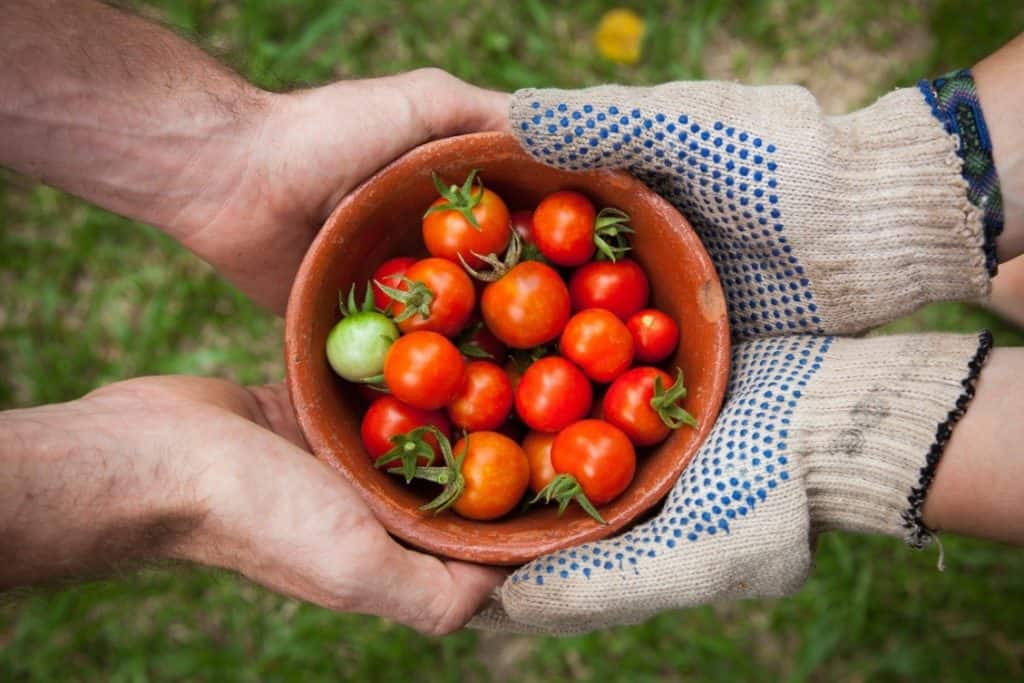The internet appears to be the new fountain of youth. You can find countless anti-aging tips online that promise to reverse aging—or at least slow it down. Of course we can never stop the course of time, and all of us will eventually get old. But rather than dread aging, the best first step is to wholeheartedly embrace its inevitability. What follows are some tips on how to prepare for growing old by seeking out the natural and organic in a world full of plastic and synthetic.
Organic Means Fewer Toxins
The fewer the toxins you’re exposed to, the less effort to get rid of them. Unlike organic food, conventionally produced food is highly exposed to hormones, antibiotics, pesticides, herbicides, and artificial fertilizers, to name a few. The same chemicals used to kill pests and speed up the growth of the cows, chickens, and pigs we consume can also remain intact in our meals, disrupting our hormones and contributing to chronic disease.
Moreover, scientists have linked these chemicals to comorbidities—the simultaneous presence of two chronic diseases in a patient. Although young people are also vulnerable, the elderly must exert more effort on expelling these hazardous elements from their bodies (even as they combat the effects of any daily prescription medications they may be taking). In effect, their organs must work extra hard.
Unlike conventionally grown food, organic crops are not only far less likely to contain toxins, but they also provide us with much-needed fiber and other cleansing properties. Eating organic helps our biological filters (liver, kidney, lymphatic system) stay in good shape as we age.
Organic Whole Food Is Easier to Digest
Almost every biological function in the body slows down with age. Among the first is our metabolism (specifically, the breaking down of food to absorb nutrients). Given that the modern diet consists of highly synthetic, processed food, digestive weakness doesn’t just affect the elderly. Many young children also have poor gut health in addition to allergies and other conditions that follow from poor digestion.
A diet of organic, whole foods is also gut-friendly because it’s in the natural state: no hormones, no toxins, and no GMOs. Whole foods contain the nutrients we need to make digestive enzymes, support gut flora, nourish and repair the body, and fight infection. If you want to learn how to prepare many gut-healing foods, look no further than Monica Corrado’s Cooking Techniques for the Gut and Psychology Diet, Part I: Meat Stock and Bone Broth.
Organic Alternatives Are Better Substitutes
Too much sugar in our diet has contributed to an alarming rise in many disorders and chronic diseases. Countless studies and experts unceasingly warn us to be wary of our sugar intake, as it can lead to an increased threat of diabetes, obesity, and even cancer. As I mentioned earlier, aging slows us down, especially our mobility and metabolism. As we experience slower digestion and energy production, consuming sugar could disrupt our health even further. Instead of white, refined sugar, opt for organic sweetener alternatives such as Stevia, fruits, honey, and coconut sugar.
Another controversial ingredient is coffee—not so much the coffee itself but the caffeine. Not to entirely undermine the benefits of caffeine, but the stimulant continues to divide researchers and lead to conflicting perspectives. Caffeine is linked to disrupted sleep patterns, higher acidity, dehydration, and hormonal imbalances. Herbal alternatives for coffee like Teeccino Herbal Coffee and Kaffree Roma may help prevent the onset of these common problems.
Organic Food Is Nutrient Dense
Many older adults in the United States are malnourished and don’t get all the nutrients they need. According to the World Health Organization, diseases suffered by the elderly are often the result of dietary factors, some of which could have been addressed in their youth. Neurological changes brought about by aging compound these factors, resulting in diseases such as colon, pancreas, and prostate cancer.
Why is organic food more nutritious? Because food starts in the soil, and soil that is rich in living microorganisms protect the plant’s immunity, providing nutrients that convert into forms that humans and animals need. On the other hand, any plant grown on sterilized soil that’s been supplemented with a few synthetic nutrients and sprayed with toxic chemicals cannot impart the full range of nutrients we need. Only organic food grown in good soil can give us the necessary macro and micronutrients—without any of the mutagenic chemicals from artificial fertilizers and pesticides.
Organic Food and Digestive Support
A weakened digestive system in the elderly, especially if combined with a steady diet of artificial chemical flavorings and preservatives from fast foods and sugary beverages, can result in food allergies, skin conditions, and malnutrition. Starting digestive support earlier in life can help you maintain digestive enzyme levels as you age. With strong digestion comes better assimilation of nutrients to supply the body’s needs. In fact, a comparative study reported that the best diets for health are those that focus on minimally processed and organic food—be it vegetables, fruits, or meat—such as the Mediterranean and Paleo diets.
Organic Living Is an Investment
Advocates argue that organic food isn’t always as expensive as many of us think. Others point out that it’s a good investment in your health as paying a little more for healthy food today will help you cut down on medical costs in the long run. A great guide for getting the most out of your organic dollars is Put Your Money Where Your Mouth Is! by Stephanie Selene Anderson. Consider this a must-read if you’re concerned about shopping healthy on a budget.
The internet is a powerful information portal. You can search for low-cost, organic foods at stores such as Thrive Market or check at your local grocery chain, many of which now carry organic food—including Costco and Sam’s Club. (Wherever you shop, always be sure that your food isn’t sourced from China.)
If gardening is feasible, why not grow your own fruits and vegetables? This therapeutic pastime can help you relax and unwind, which in turn reduces stress and blood pressure and results in better mental health—all while your backyard thrives with life.
A physically and mentally active lifestyle complemented with a diet of fresh, whole foods imparts more confidence about aging. It can ultimately increase your chances of remaining healthy and strong, and it may even reduce your need for medications. Though we can never defy nature, the best response is to prepare for a long, healthy entrance into old age.
Images from Unsplash/Brandon Morgan (main), Kyle Meck (coffee), Elaine Casap (tomatoes).


